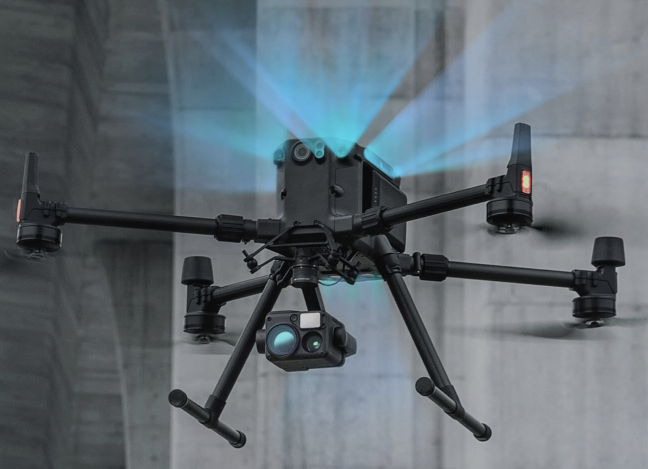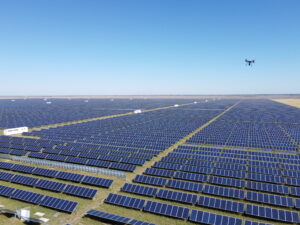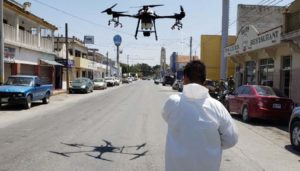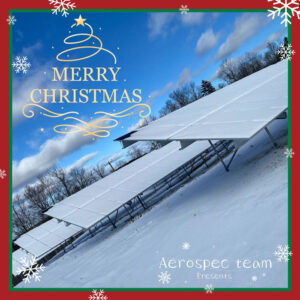DJI has introduced the heavily anticipated, feature packed Matrice 300 RTK drone and Zenmuse H20 camera systems. (See Figure 1.) Improving upon many of the features of its workhorse predecessor the Matrice 210, the M300 RTK sets the standard for functionality and performance.

The most salient upgrades include a 55 minute flight time, a 6 pound payload capability, and the addition of ToF collision avoidance cameras on all 6 sides of the drone. For reference, this is roughly 1.5 times the range and nearly 2x the payload capacity of its predecessor in the 200 series. These features coalesce to create a drone that excels in large scale, complex missions.
To compliment its increased payload capacity, DJI has also introduced two robust new camera systems. The Zenmuse H20 SP sports a 12 MP wide camera and a 20 MP zoom camera with a 1,200 meter laser rangefinder while also offering a thermal variant in the H20T, featuring a 640×512 thermal camera. (See Figure 2.) The M300 boasts a range of new features that allow pilots to make the most of the new camera systems. These include the ability to mark objects of interest and recreate that exact angle in future missions, tracking moving objects, and a one click capture mode that eliminates the need for operators to switch between cameras during flight.
Furthermore, the M300 RTK is capable of relaying 1080p video within 15 KM of the controller. DJI has introduced a number of quality of life solutions as well, including a dual operator mode, IP45 weather sealing, and a hot swap battery system which allows pilots to quickly change power supplies without powering down.
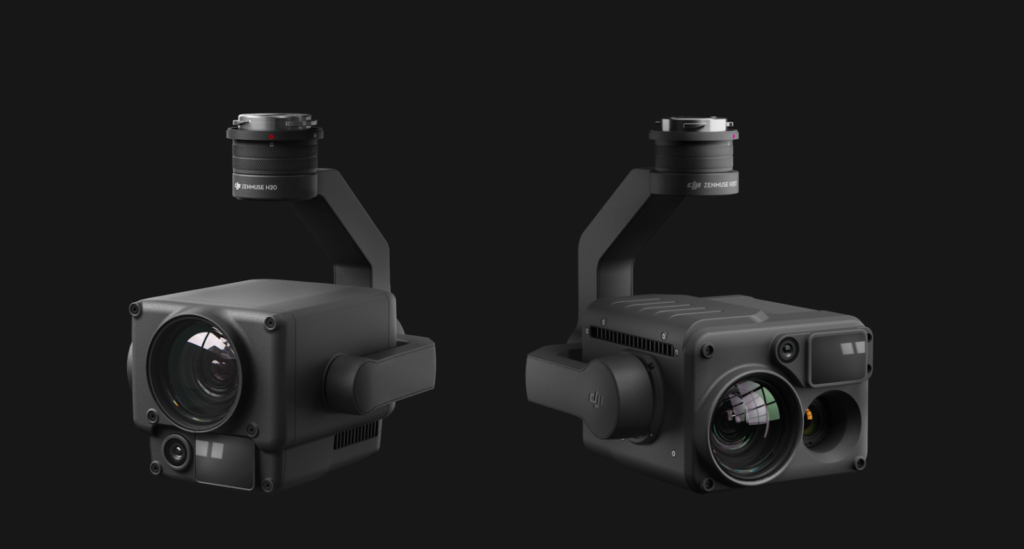
A New Industry Standard
Upon reviewing the Matrice 300 RTK’s feature list, it is clear that DJI has emphasized improvements in range, reliability, and optical power of the Matrice 200 series. These changes make the M300 RTK the ideal drone for aerial inspection missions, allowing for unparalleled speed and quality of inspection. Aerial inspection of solar farms, for example, will greatly benefit from these upgrades. The M300 RTK is able to cover a range of approximately 9.5 KM of solar site per battery charge compared to the M210’s inspection range of 5.2 KM, meaning that the M300 RTK is able to inspect nearly double the area per charge. (See Table 1. and Figure 3. for summary comparison)
Table 1. M300 RTK vs. M200 Series vs. Inspire Comparison
| Drone Type | Flight Time with IR Payload | Range/Battery Charge | Approximate Coverage Area |
| M300 RTK | ~ 45 min | 9.5 KM | ~ 8 MW |
| M200 Series | ~ 25 min | 5.2 KM | ~ 5 MW |
| Inspire | ~ 12 min | 2.5 KM | ~ 2 MW |
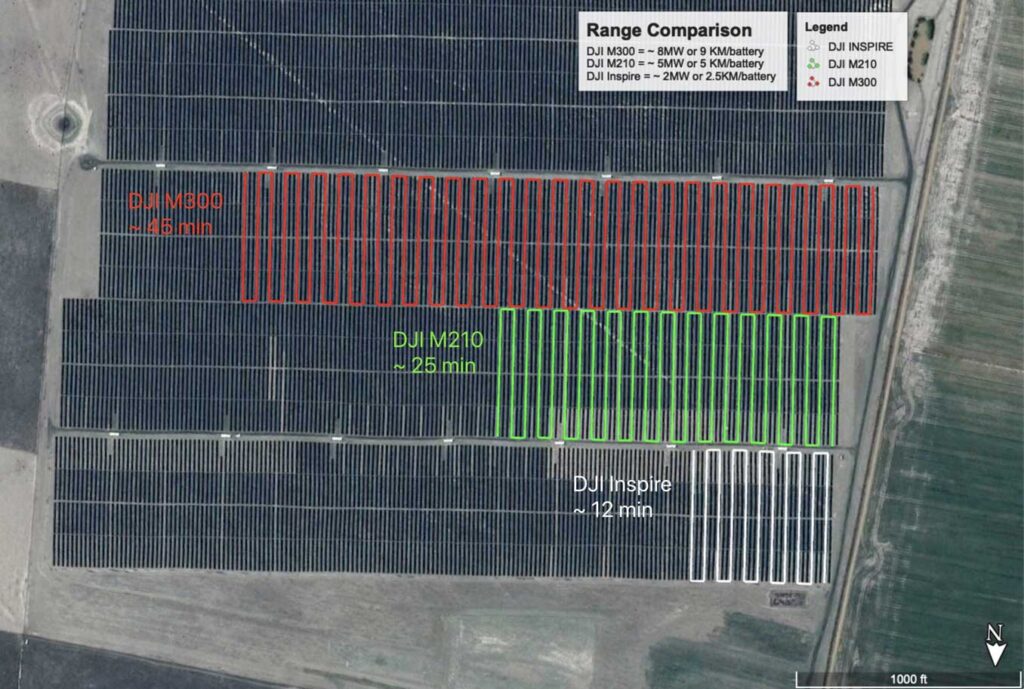
The increased range translates to fewer man hours spent on conducting each inspection. According to Aerospec Technologies, a drone/pilot service charges roughly $6,800USD for a two-day project covering 65 MW using a M200 + XT2 setup. (See Figure 4.) Since the M300 RTK is capable of covering nearly double the area per charge, using the M300 RTK could complete the same inspection in just one day, saving roughly $3,400USD per inspection. In terms of CAPEX, the payback period would take fewer than 8 inspections of a 65MW site to recoup the cost of the drone in saved man hours. It would take an even lower number of inspections for larger sites. For example, the payback period of investing in a M300 fleet is less than one inspection for the 850MW solar park which Aerospec inspected previously.

The DJI Matrice 300 RTK promises to become the premier choice for aerial inspection pilots everywhere. Improvements to range and performance enable pilots to complete missions faster than ever before, and powerful new optical payloads and features will facilitate consistent and precise inspection results. Pairing the M300’s power with an inspection solution platform, such as Aerospec Technologies’s AeroSolar, will allow solar farm owners to further optimize their assets. DJI has created the most capable drone available on the market today, and it will surely become an essential tool in the coming years of support and development.
For more product related questions on the DJI Matrice 300 RTK, click here to find out more information from our trusted partner RMUS, one of the largest authorized DJI dealers in the U.S. To learn more about how Aerospec Technologies can optimize your solar aerial inspection’s operations, please visit www.aerospec.us.

